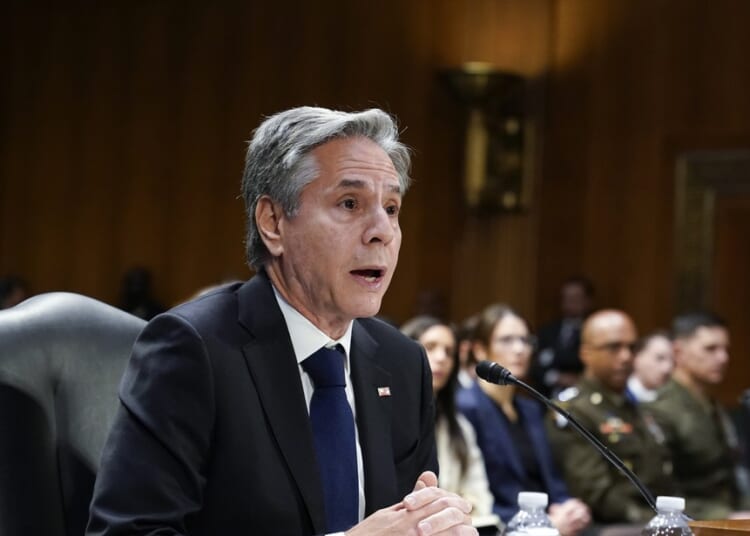Secretary of State Antony Blinken is taking a break from his globetrotting diplomacy tour this week to hang out in Davos at the World Economic Forum and hobnob with the private jet set who want the rest of us to live in pods and eat bugs. While there, he sat down for an interview with Thomas Friedman of the New York Times. They discussed the situation in the Middle East, particularly the Israel-Hamas war and the future of Gaza. As Adam Kredo of the Free Beacon noted, the results were far from reassuring. This is a tense, dangerous period and we need diplomats who well and truly have a grip on the situation. Blinken, by contrast, appears to be laboring under some worrisome delusions.
Secretary of State Antony Blinken sat for an interview with New York Times columnist Thomas L. Friedman at the World Economic Forum in Davos, Switzerland, on Wednesday. It was not reassuring…
War rages. What most interests Tom Friedman, however, are the chances for a Palestinian state. He says it’s the key to peace in the Middle East—a position from which he has not wavered, despite all evidence to the contrary, for more than 20 years. Antony Blinken is more than happy to indulge in this delusion.
“If you take a regional approach,” he told Friedman, “and if you pursue integration with security, with a Palestinian state, all of a sudden you have a region that’s come together in ways that answer the most profound questions that Israel has tried to answer for years, and what has heretofore been its single biggest concern in terms of security, Iran, is suddenly isolated along with its proxies, and will have to make decisions about what it wants its future to be.”
Kredo correctly describes Blinken’s theory as “breathtaking in its unseriousness.” It’s almost as if he believes he was the first person to come up with the idea of a two-state solution. And were it to happen, most of Israel’s challenges would simply evaporate like dew on a summer day. But people have been talking about a two-state solution for decades. Has it crossed Blinken’s mind that there’s a reason it hasn’t happened yet?
Blinken told Friedman that this hypothetical new Palestinian state would be run by a “stronger, reformed Palestinian Authority.” But he’s barking up the wrong tree yet again, despite that seemingly being the current Biden administration theory. The PA has repeatedly said that they don’t want anything to do with running Gaza and the Gazans aren’t wild about the PA either. Neither is Israel, so they probably wouldn’t tolerate it.
The Secretary of State also somehow believes that such a Palestinian state would result in Iran being isolated, with all of Israel’s neighbors magically becoming friends and protectors of the Jews. It’s true that some of the Arab states have moved toward more normal relations with Israel, particularly when Trump was in office. But those are still majority Muslim nations with long histories of anti-Jewish sentiment. They also tend to contain pockets of terrorists of their own of various flavors, many of which share many sentiments with both Hamas and Iran. What color is the sky in Antony Blinken’s world?
The beginnings of Arab acceptance of Israel were rooted in economic and security interests. Saudi Arabia was an early leader in that effort. They realized that Israel is backed by the United States and that meant they stood to be more profitable and less likely to be attacked if they backed the superior force in the region. If global support for Israel is seen as crumbling, they would probably slip back into their old habits quickly.
In the end, only the people of Gaza can say how they will be governed and by whom. Whether that form of governance winds up being recognized is up to their neighbors and the rest of the world’s nations. It would be nice if they chose a different path once Hamas has been removed as much as possible, but it’s difficult to see them simply accepting some new government assembled by their perceived enemies. And that’s largely what Blinken is promoting. It’s simply not realistic.

